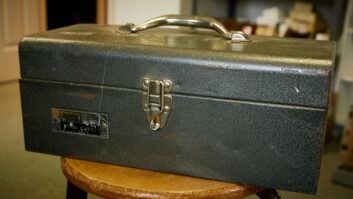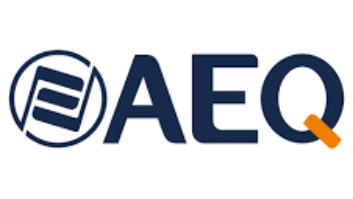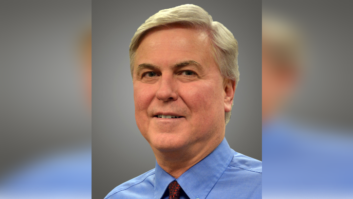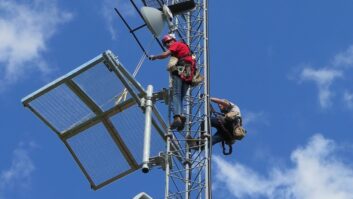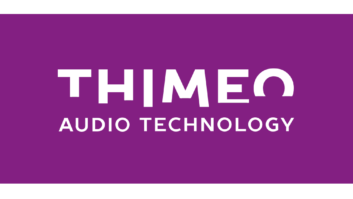Facing new programming and digital conversion costs in 2005, public radio stations are exploring new ways to raise crucial funds while refocusing their efforts on the basics.
As managers become increasingly adept at asking for larger gifts from major donors, for example, they’re also seeking greater efficiency from more traditional fundraising methods such as on-air pledge and direct mail.
It’s part of a revamped landscape in which public stations are finding themselves more dependent on listener-sensitive income as the costs of doing business are rising.
Think big
“One reason it’s not all that easy to be a station manager is having to manage five or more disparate revenue streams – individual giving, major donors, foundation grants, licensee or government subsidies, and underwriting sales,” public radio consultant John Sutton writes on his weblog.
“There aren’t too many businesses that require managers to be good at so many different ways of generating income.”
Public stations are still too reliant on the two main fundraising warhorses: on-air pledge and underwriting, argues Greg Salustro, vice president of development at Chicago Public Radio. Stations need to diversify their fundraising activities to include e-fundraising, major gifts and planned giving programs, he says.
With the exaggerated emphasis on pledge, stations lean too heavily on gifts at the lower end of the giving pyramid, he believes. They need to start increasing the number of gifts at the $1,000 level or higher.
A growing number of stations are getting into the major giving arena, said Dana Davis Rehm, vice president for member and program services at National Public Radio. Stations are just beginning to unearth community leaders willing to give at those higher levels, who can inspire their friends to do the same.
Grants from foundations are another relatively untapped revenue stream, said Caryn Mathes, general manager of WAMU(FM) in Washington. Though those dollars are difficult to acquire, they’re worth pursuing, she said.
Remember the basics
Yet even as stations diversify their development activities, much attention still needs to be paid to the fundamentals, many public radio managers contend. For example, stations could do a better job at converting listeners into members and then renewing those donors, Mathes said.
On-air pledge practices also deserve review, she added, particularly the dependence on premiums used to bait new members. Tasty premiums entice people to give, but create a trap of having to offer ever better giveaways to lure those dollars. As premiums become more expensive, stations are netting less revenue.
Raising a dollar is proving more difficult today as new technologies like podcasting and satellite radio steal listeners from traditional broadcasts, said consultant Sheila Rue. In an increasingly on-demand world, listeners can tune out pledge drives, which many find annoying.
While larger, wealthier public stations are expanding their fundraising activities despite such threats, smaller, poorer stations face their own unique challenges.
Lack of staff is the chief impediment at KRWG(FM) in Las Cruces, N.M., according to Development Director Ford Ballard. For many years, he alone was the fundraising department – responsible for bringing in more than $200,000 a year in his economically depressed community. Now there are two people on staff, he reports.
The capacity of any single fundraiser in his market is about $150,000 a year, Ballard estimates. “After that, you just don’t have enough hours in the day.”
“In more rural and depressed areas, it’s just that much harder to find the money,” he said. “You have to be more resourceful for longer.”
Other small stations, still in their fundraising infancy, are just learning the basics.
“Our challenge is in doing it for the first time and to make it effective” said Tom Crawford, GM of WMSE(FM) in Milwaukee. Public stations in his market have been doing pledge drives for decades; his station is just gearing up.
A latecomer to the game, WMSE is learning to talk to its listeners in new ways to inspire contributions without annoying them. Given the station’s alternative music format, it’s a tricky task because listeners aren’t accustomed to the more traditional appeals for support heard on other pubradio outlets.
New costs
Regardless of size, nearly every station faces rising programming costs and the bill for digital conversion, according to Ken Mills, a programming consultant.
Nearly all news/talk stations will pay more for programming now that Public Radio International and Minnesota Public Radio have parted ways. Programs from PRI and American Public Media, the Minnesota spin-off, now come with their own costs rather than one neatly bundled fee.
The bump is forcing many stations to make painful decisions about eliminating certain programs, Mills said. With stations facing a 20 to 30 percent boost, there are “real bottom-line cash flow issues.”
The Corporation for Public Broadcasting is helping defray the costs of digital conversion for many stations, but training costs on the new equipment will add to station expenses, Mills said. Because some stations will launch multiple programming streams, they must also absorb the costs of additional programming.
As potent a problem as rising costs are rising expenses at many stations, warns consultant John Sutton. “Stations build their budgets on what they want to spend, not what they can raise.”
New spending on local programming, Web sites, administration and overhead is wiping out the gains made in fundraising. To cover the shortfall, Sutton said, stations are scrambling halfway through the fiscal year to add pledge days or drop more direct mail. Sutton encourages stations to set realistic three-to-five-year financial plans and stick to them.
Even as stations develop new ways to solicit money, the “ask” is still the most important part of the process, says Steve Ramsey, GM of KBCS(FM) in Bellevue, Wash. “You have to ask for what you need,” he said. “Stations that haven’t done well financially haven’t made that connection with their community or stated their needs.”
Ultimately, if public stations provide listeners with a valuable service and ask them to pay for it, they usually do.
“The challenge is to articulate what we need and ask our listeners for it.”





